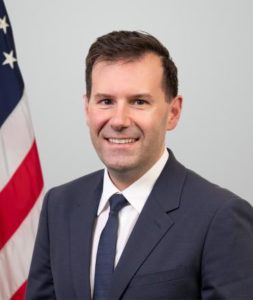
Throughout his first year as director of the U.S. Food and Drug Administration’s Center for Tobacco Products (CTP), the agency has maintained a steadfast commitment to its core principles of sound science, strategic partnerships, health equity and transparency, CTP Director Brian King said in a recent interview.
King underscored the enduring importance of these principles. He emphasized that the center’s recent decisions and enforcement efforts have been grounded in comprehensive scientific analysis. This approach, he noted, ensures that product marketing and regulatory actions are well-informed and evidence-based.
Furthermore, the director highlighted the importance of teamwork, a skill honed through his background as a scientist. Scientific thinking, rooted in objective evidence evaluation, plays a pivotal role in CTP’s work. This scientific approach is instrumental in addressing the complexities of tobacco product regulation effectively, according to King, who also emphasized the importance of effective communication in conveying scientific findings and messages.
A significant focus of CTP’s work is promoting health equity in tobacco product regulation. King discussed efforts to address disparities in tobacco use, especially among youth and young adults. Notably, the CTP is working on product standards that would prohibit menthol as a characterizing flavor in cigarettes and all characterizing flavors in cigars. King views these standards as a major step toward reducing the appeal of these products, particularly among communities disproportionately affected, such as people of color, low-income populations and LGBTQ+ individuals.
To further advance health equity, the CTP has undertaken initiatives like the “Next Legends” campaign to educate American Indian and Alaska Native youth about the harms of e-cigarettes and providing Spanish-language adult cessation education resources.
During his tenure, the center welcomed Charlene Le Fauve as its first senior advisor for health equity, a crucial role in integrating health equity into the center’s programmatic plans and priorities, according to King.
Looking ahead to the next three to five years, the director stressed the importance of having a clear vision. The CTP is in the process of creating a new strategic plan with the involvement of internal staff and external stakeholders to ensure the center’s continued growth and adaptation in a dynamic regulatory landscape. The plan, to be released by December 2023, will provide a roadmap for CTP’s future, aligning its actions with changing times and the goal of reducing tobacco-related diseases and deaths in the United States.


